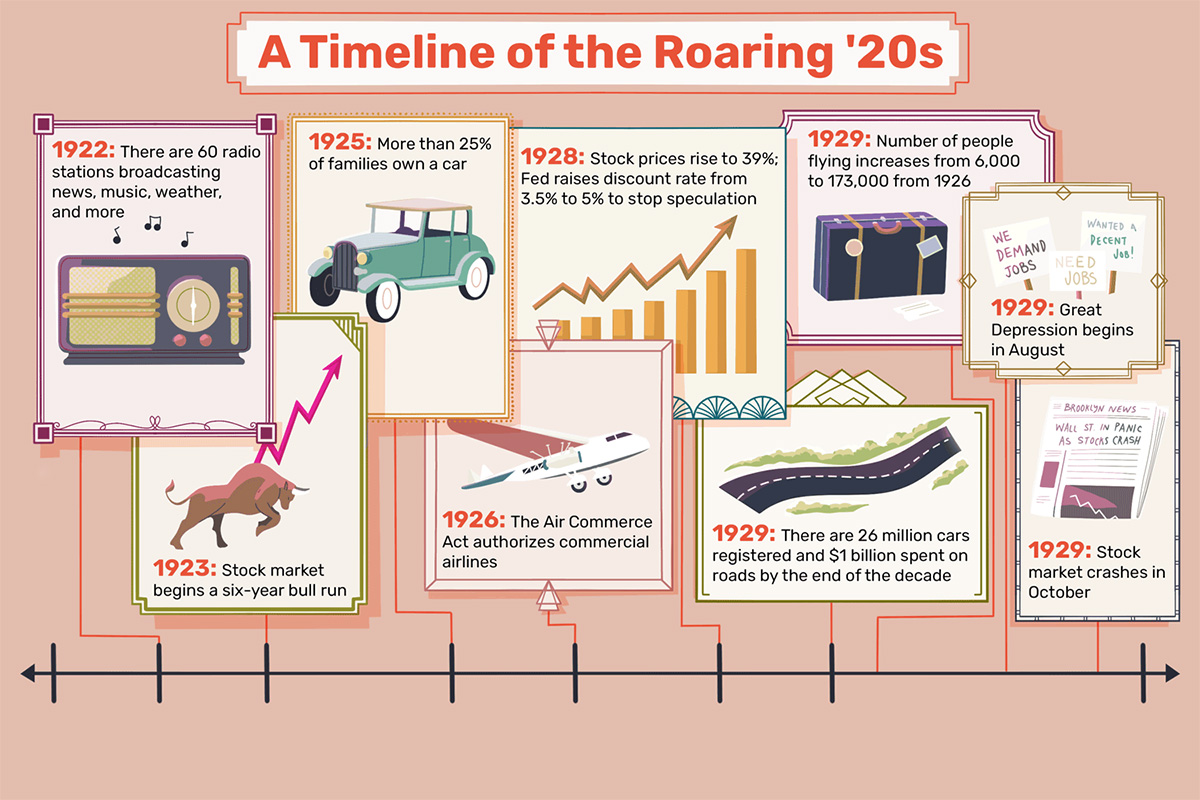

Finance
Which Is Better Accounting Or Finance
Published: October 9, 2023
Wondering which is better between accounting and finance? Discover the key differences, career options, and choose the path that suits your interests and goals. Start your journey in the world of finance today!
(Many of the links in this article redirect to a specific reviewed product. Your purchase of these products through affiliate links helps to generate commission for LiveWell, at no extra cost. Learn more)
Table of Contents
Introduction
When it comes to the world of business and finance, two fields that often come to mind are accounting and finance. While these terms are often used interchangeably, there are distinct differences between the two. Accounting and finance both play crucial roles in the financial management of an organization, but they involve different skill sets and responsibilities. In this article, we will explore the nuances of accounting and finance, compare their job prospects and salary potential, and help you determine which path may be the right fit for you.
Accounting is the practice of recording, analyzing, and reporting financial transactions. It involves tasks such as bookkeeping, preparing financial statements, and ensuring compliance with regulations. Accountants are responsible for maintaining accurate financial records and providing valuable insights into the financial health of a business. They play a crucial role in helping organizations make informed decisions about their financial operations.
On the other hand, finance focuses on the management of money and investments. Finance professionals are involved in evaluating investment opportunities, managing financial risks, and making strategic decisions to maximize the value of an organization’s capital. They analyze financial data, create financial models, and provide recommendations on how to allocate resources effectively.
While accounting and finance have distinct roles, it is important to note that they are closely intertwined. A strong foundation in accounting principles is essential for a career in finance, as understanding financial statements and interpreting data are key skills in financial analysis and decision-making.
In the following sections, we will delve deeper into the specifics of accounting and finance, comparing the skills required, job prospects, and salary potential of these two fields. Whether you are considering a career in accounting or finance, or simply curious about the differences between the two, this article will provide valuable insights to help you make an informed decision.
Overview of Accounting
Accounting is a fundamental aspect of business operations, providing a systematic approach to record, analyze, and interpret financial information. It enables businesses to track their financial transactions, assess their performance, and make informed decisions. In this section, we will provide an overview of the key aspects of accounting.
At its core, accounting involves the process of bookkeeping, which includes recording transactions, maintaining financial records, and organizing financial data. This ensures that the financial information is accurate, reliable, and compliant with accounting principles and regulations.
Accounting can be categorized into various subfields, including financial accounting, managerial accounting, and tax accounting. Financial accounting focuses on the preparation of financial statements, such as balance sheets, income statements, and cash flow statements, which are essential for external stakeholders, such as investors and regulators, to assess the financial health of an organization.
Managerial accounting, on the other hand, provides internal stakeholders, such as managers and decision-makers, with relevant financial information for planning, controlling, and evaluating the operations of a business. It involves budgeting, cost analysis, and performance measurement to support strategic decision-making.
Tax accounting deals with the complex world of taxation and ensures that businesses comply with tax laws and regulations. Tax accountants help organizations minimize their tax liabilities through strategic planning and accurate reporting.
Key skills required in the field of accounting include attention to detail, analytical thinking, and strong mathematical abilities. Accountants must be proficient in accounting software and possess a solid understanding of accounting principles and standards.
Moreover, accountants must possess excellent communication skills, as they often need to explain complex financial information to non-financial stakeholders. This includes presenting financial reports, providing financial advice, and collaborating with other departments within an organization.
Accounting offers a wide range of career opportunities, including roles such as auditors, financial analysts, tax accountants, and forensic accountants. The demand for accounting professionals remains strong across various industries, as businesses require accurate financial information for decision-making and compliance purposes.
Overall, accounting is a critical function within organizations, ensuring the financial integrity and transparency of businesses. It provides a solid foundation for individuals interested in pursuing a career in finance, as it equips them with a thorough understanding of financial records, reporting, and analysis.
Overview of Finance
Finance is the discipline that deals with the management of money and investments. It involves analyzing financial data, making strategic decisions, and maximizing the value of an organization’s capital. In this section, we will provide an overview of the key aspects of finance.
Finance encompasses a wide range of activities, including financial planning, investment analysis, risk management, and corporate finance. Financial planning involves developing strategies and setting goals to ensure the efficient use and allocation of resources. It includes budgeting, forecasting, and cash flow management to support the long-term financial stability of an organization.
Investment analysis is a critical component of finance, involving the evaluation of different investment opportunities to determine their potential returns and risks. This includes analyzing financial statements, conducting market research, and utilizing various financial models to make informed investment decisions.
Risk management is another important aspect of finance, as all investment carries a certain level of risk. Finance professionals assess and mitigate risks by developing risk management strategies, diversifying investment portfolios, and implementing appropriate financial instruments.
Corporate finance focuses on managing the financial operations and decisions of a company. This includes capital budgeting, determining the optimal capital structure, and making financing decisions. Corporate finance professionals work closely with other departments to ensure that financial resources are allocated efficiently and effectively.
Skills required in the field of finance include strong analytical and problem-solving abilities, as finance professionals need to analyze financial data, identify trends, and make accurate forecasts. They must also possess a solid understanding of financial principles, tools, and techniques, such as discounted cash flow analysis, financial modeling, and valuation methods.
Moreover, finance professionals must have excellent communication and interpersonal skills, as they often need to present financial information to stakeholders, negotiate deals, and collaborate with colleagues and clients.
Career opportunities in finance are diverse and range from financial analysts and investment bankers to financial managers and risk managers. The demand for finance professionals remains high, as organizations require individuals with expertise in managing financial resources, analyzing market trends, and making sound financial decisions.
In terms of education, a degree in finance, accounting, or a related field is typically required to enter the finance industry. Additionally, obtaining professional certifications such as the Chartered Financial Analyst (CFA) or Certified Financial Planner (CFP) can enhance career prospects in finance.
Overall, finance plays a critical role in the success and growth of businesses. It provides individuals with an opportunity to apply their analytical and strategic skills to make informed financial decisions that impact an organization’s bottom line.
Comparison of Accounting and Finance
While accounting and finance are closely related fields in the world of business and finance, they have distinct differences in terms of their focus and responsibilities. In this section, we will compare accounting and finance based on various aspects.
Focus: Accounting primarily focuses on recording, analyzing, and reporting financial transactions. It involves tasks such as bookkeeping, preparing financial statements, and ensuring compliance with regulations. On the other hand, finance focuses on managing money and investments, evaluating investment opportunities, and making strategic financial decisions.
Skills Required: The skills required for accounting include attention to detail, strong mathematical abilities, and proficiency in accounting software. Accountants must also possess excellent communication skills to effectively communicate financial information to non-financial stakeholders. In finance, strong analytical and problem-solving skills are essential, along with a solid understanding of financial principles and tools. Finance professionals must also have excellent communication skills to present financial strategies and advice to stakeholders.
Job Roles: Accountants can work in various roles such as auditors, financial analysts, tax accountants, and forensic accountants. These roles focus on maintaining accurate financial records, analyzing financial data, and providing insights into the financial health of an organization. Finance professionals, on the other hand, can work as financial analysts, investment bankers, financial managers, or risk managers. Their roles involve evaluating investment opportunities, managing financial risks, and making strategic financial decisions.
Interplay: While accounting and finance are separate fields, they are interconnected. A strong foundation in accounting principles is essential for a career in finance, as understanding financial statements and interpreting data are crucial skills for financial analysis and decision-making. Finance professionals often rely on accurate financial information provided by accountants to make informed financial decisions.
Education and Certification: Both accounting and finance require a solid educational background in the respective fields. A degree in accounting, finance, or a related field is typically required. Additionally, pursuing professional certifications such as the Certified Public Accountant (CPA) or Chartered Financial Analyst (CFA) can enhance career prospects in both fields.
Overall, accounting and finance are complementary fields that play vital roles in the financial management of organizations. While accounting focuses on maintaining accurate financial records and reporting, finance deals with managing money, analyzing investment opportunities, and making strategic financial decisions. Both fields offer a wide range of career opportunities and require a combination of technical and interpersonal skills. Ultimately, the choice between accounting and finance depends on one’s interests and career goals.
Skills Required for Accounting
Accounting is a field that requires a specific set of skills and knowledge to be successful. In this section, we will discuss the key skills required for a career in accounting.
1. Attention to Detail: Accountants deal with large amounts of financial data and transactions, and it is crucial to have a keen eye for detail to ensure accuracy in recording and analyzing information.
2. Analytical Thinking: Accountants need to have strong analytical skills to interpret financial data, identify trends, and make informed decisions based on the information available.
3. Mathematical Abilities: A solid understanding of mathematics is essential for accountants, as they must work with numbers, calculate financial ratios, and perform complex calculations.
4. Proficiency in Accounting Software: Accountants use various financial software applications to manage and process financial data. Proficiency in accounting software such as QuickBooks or SAP is highly beneficial in the field.
5. Knowledge of Accounting Principles: Accountants must have a deep understanding of accounting principles and standards, such as Generally Accepted Accounting Principles (GAAP) or International Financial Reporting Standards (IFRS).
6. Communication Skills: Accountants need to effectively communicate financial information to both financial and non-financial professionals. Strong written and verbal communication skills are crucial to convey complex financial concepts in a clear and understandable manner.
7. Problem-Solving: Accountants often encounter challenges and discrepancies in financial data. They must possess strong problem-solving skills to identify and resolve issues, ensuring accuracy in financial reporting.
8. Ethics and Integrity: Accountants deal with confidential financial information and must uphold principles of ethics and integrity. They should adhere to professional standards and maintain confidentiality in dealing with sensitive financial data.
9. Time Management: Accountants often have to handle multiple tasks and deadlines. Effective time management skills are necessary to prioritize tasks, meet deadlines, and ensure accurate and timely financial reporting.
10. Continuous Learning: The field of accounting is constantly evolving, with changes in regulations and accounting standards. Accountants should have a thirst for learning and stay updated with the latest developments in the industry.
Developing these skills can help aspiring accountants excel in their careers. They can be acquired through formal education, practical experience, and continuous professional development. Successful accountants combine technical expertise with strong interpersonal skills, allowing them to effectively communicate financial information and provide valuable insights to support decision-making within organizations.
Skills Required for Finance
A career in finance requires a unique set of skills and expertise to thrive in the dynamic field of money management. In this section, we will explore the key skills required for success in finance.
1. Analytical Abilities: A strong foundation in analytical thinking is crucial for finance professionals. They must be able to analyze complex financial data, identify trends and patterns, and draw meaningful insights to make informed decisions.
2. Numerical Aptitude: Finance professionals work with numbers extensively. They need to possess strong mathematical abilities to perform calculations, analyze financial statements, and evaluate investment opportunities.
3. Financial Knowledge: A deep understanding of financial principles, concepts, and tools is essential in finance. This includes a grasp of financial statements, risk management techniques, valuation methods, and financial modeling.
4. Problem-Solving Skills: Finance professionals encounter challenges and complex scenarios where they must employ critical thinking and creative problem-solving abilities. They must examine different options, evaluate risks, and propose appropriate financial solutions.
5. Proficiency in Technology and Tools: Technology plays a critical role in finance, and professionals need to be comfortable working with financial software and tools. Proficiency in spreadsheets, financial modeling software, and data visualization tools is highly beneficial.
6. Communication Skills: Effective communication skills are vital in finance, as professionals need to present financial information and strategies to stakeholders, collaborate with team members, and negotiate deals. Clear and concise communication is essential to convey complex financial concepts to both financial and non-financial individuals.
7. Attention to Detail: Accuracy is paramount in finance, as even the slightest error can have significant consequences. Finance professionals must have excellent attention to detail to ensure precision in financial analysis, reporting, and decision-making.
8. Time Management: Finance professionals often work with deadlines and multiple tasks simultaneously. Strong time management skills are necessary to prioritize work, meet deadlines, and ensure that financial operations run smoothly.
9. Research Skills: Conducting research is a crucial aspect of finance, whether it’s analyzing market trends, evaluating investment opportunities, or staying updated with regulatory changes. Finance professionals need to be adept at gathering and interpreting relevant information.
10. Business Acumen: Understanding the broader business environment and industry dynamics is essential for finance professionals. They must be able to view financial data through a strategic lens and align financial decisions with broader business goals.
These skills can be developed through a combination of formal education, practical experience, and continuous learning. Pursuing a degree in finance, accounting, or a related field, and obtaining professional certifications such as the Chartered Financial Analyst (CFA) or Certified Financial Planner (CFP), can also enhance career prospects in finance.
Successful finance professionals combine technical expertise with strong interpersonal skills, enabling them to analyze financial data, make informed decisions, and effectively communicate financial strategies that contribute to the growth and success of organizations.
Job Prospects in Accounting
Accounting is a field that offers a wide range of job prospects and opportunities for individuals seeking a career in the financial sector. In this section, we will explore the job prospects and potential career paths in accounting.
1. Auditor: Auditors play a crucial role in ensuring the accuracy and reliability of financial information. They assess financial records, internal controls, and compliance with regulations to provide independent opinions on the financial health of organizations.
2. Financial Analyst: Financial analysts analyze financial data, assess investment opportunities, and provide insights and recommendations to help organizations make informed decisions. They evaluate financial performance, identify trends, and conduct financial forecasting and modeling.
3. Tax Accountant: Tax accountants specialize in tax planning, preparation, and compliance. They ensure that individuals and organizations meet their tax obligations, identify potential tax savings strategies, and provide advice on tax-related matters.
4. Management Accountant: Management accountants provide financial insights and support to internal stakeholders, such as managers and decision-makers. They analyze financial data, prepare budgets, perform cost analysis, and contribute to strategic decision-making.
5. Forensic Accountant: Forensic accountants investigate financial crimes and fraud. They examine financial records, interview individuals, and work closely with law enforcement agencies and attorneys to gather evidence and provide expert analysis in legal proceedings.
6. Public Accountant: Public accountants offer services such as tax preparation, auditing, and financial consulting to individuals, businesses, and government entities. They may work for accounting firms or run their own independent practices.
7. Government Accountant: Government accountants are employed by governmental agencies to ensure compliance with financial regulations and manage public funds. They prepare financial reports, analyze budgets, and monitor expenditures.
8. Internal Auditor: Internal auditors work within organizations to assess internal controls, identify risks, and provide recommendations to improve efficiency and effectiveness. They play a critical role in ensuring proper governance and risk management.
9. Cost Accountant: Cost accountants focus on analyzing and managing costs within an organization. They collect, analyze, and report on cost data to help businesses make informed decisions on pricing, product profitability, and cost reduction strategies.
10. Financial Planner: Financial planners work with individuals and families to develop personalized financial plans, including budgeting, investment strategies, retirement planning, and risk management. They help clients achieve their financial goals and provide ongoing guidance and advice.
The demand for accounting professionals remains strong across various industries and sectors. Organizations require accountants to maintain accurate financial records, analyze financial data, and provide valuable insights to support decision-making and compliance requirements.
Moreover, accounting offers opportunities for career growth and advancement. With experience and additional certifications, such as becoming a Certified Public Accountant (CPA) or earning an advanced degree, accountants can pursue senior roles such as finance managers, controllers, or chief financial officers.
Overall, the job prospects in accounting are promising, with a range of opportunities available for individuals with the necessary skills and qualifications. It is a field that provides stability, growth, and the opportunity to make a meaningful impact on the financial management of organizations.
Job Prospects in Finance
Finance is a dynamic field that offers a wide range of job prospects and opportunities for individuals interested in the world of money management. In this section, we will explore the job prospects and potential career paths in finance.
1. Financial Analyst: Financial analysts play a critical role in analyzing financial data, evaluating investment opportunities, and providing recommendations to support decision-making. They work in various sectors, including banking, investment firms, and corporate finance.
2. Investment Banker: Investment bankers assist clients in raising capital, mergers and acquisitions, and financial restructuring. They analyze market trends, create financial models, and facilitate complex financial transactions.
3. Portfolio Manager: Portfolio managers manage investment portfolios on behalf of individuals, institutions, or funds. They assess risk, select appropriate investment options, and monitor the performance of the portfolio to achieve financial objectives.
4. Risk Manager: Risk managers identify and assess potential risks to an organization’s financial well-being. They develop strategies to mitigate and manage risks through insurance, hedging, and other risk management techniques.
5. Financial Planner: Financial planners work with individuals and families on financial goal setting, retirement planning, and investment strategies. They provide personalized financial advice and guidance to help clients achieve their financial objectives.
6. Corporate Financial Analyst: Corporate financial analysts work within organizations, analyzing financial data, preparing financial reports, and providing insights that support strategic decision-making and financial planning.
7. Credit Analyst: Credit analysts assess the creditworthiness of individuals or businesses applying for loans. They analyze financial data, evaluate risk factors, and recommend appropriate lending terms based on their assessments.
8. Financial Consultant: Financial consultants offer advisory services to clients, providing guidance on various financial matters, such as investment planning, tax strategies, and wealth management.
9. Insurance Underwriter: Insurance underwriters evaluate insurance applications and determine the level of risk and appropriate premiums. They analyze financial and risk-related information to make informed decisions on policy issuance and coverage.
10. Financial Manager: Financial managers oversee the financial operations of an organization. They develop financial strategies, monitor budgets, and ensure the organization’s financial health is optimized. They may hold titles such as CFO (Chief Financial Officer) or finance director.
The job prospects in finance remain strong, as organizations across industries require finance professionals to ensure effective financial management, investment decisions, and risk mitigation. Additionally, technological advancements and globalization have expanded the scope of finance, opening doors to new opportunities and roles.
Furthermore, finance offers avenues for career growth and advancement. Finance professionals can pursue advanced degrees, such as an MBA or specialized certifications, like the Chartered Financial Analyst (CFA), to enhance their knowledge and skills, opening doors to senior-level positions and executive roles.
Overall, the job prospects in finance are vast and varied, providing individuals with opportunities to contribute to the financial success and growth of organizations while enjoying diverse and fulfilling careers.
Salary Potential in Accounting
Accounting offers a promising salary potential for professionals in various roles across different industries. The salary in accounting can vary depending on factors such as location, level of experience, educational background, and industry specialization. In this section, we will explore the salary potential in accounting.
Entry-level accounting positions, such as staff accountants or bookkeepers, typically have a starting salary ranging from $40,000 to $60,000 per year. As accountants gain experience and progress in their careers, they can expect salary increases. With several years of experience, accountants can earn salaries in the range of $60,000 to $80,000 per year.
Obtaining a professional certification, such as the Certified Public Accountant (CPA) designation, can significantly impact salary potential. Certified accountants often earn higher salaries compared to their non-certified counterparts. CPA professionals can expect salaries in the range of $70,000 to $100,000 per year, or even higher in senior positions or at large accounting firms.
Specialized positions in accounting, such as forensic accountants or tax consultants, can command higher salaries due to their niche expertise. These professionals may earn salaries ranging from $80,000 to $120,000 per year.
Accounting managers or finance managers, who oversee financial operations and lead teams, can earn salaries well above the six-figure mark. Salaries for these positions can range from $100,000 to $150,000 or more, depending on the size and complexity of the organization.
Industry specialization can also impact salary potential in accounting. For example, accountants working in the financial services industry or for prestigious accounting firms may earn higher salaries compared to those in other sectors. Additionally, accountants working in major metropolitan areas or cities with a high cost of living tend to earn higher salaries due to the higher demand and cost of living adjustments.
It’s important to note that salary potential in accounting can continue to increase with experience and advancement in one’s career. Senior-level accounting professionals, such as CFOs or partners in accounting firms, can earn salaries well into the six-figure range or even seven figures.
Overall, accounting offers competitive salary potential, especially for individuals with certifications and specialized skills. It provides opportunities for career growth and advancement, with the potential to earn a comfortable income as one gains experience and expertise in the field.
Salary Potential in Finance
Finance is a field that offers attractive salary potential for professionals in various roles and industries. The salary in finance can vary based on factors such as job title, level of experience, educational background, geographic location, and the size and type of organization. In this section, we will explore the salary potential in finance.
Entry-level positions in finance, such as financial analysts or junior investment bankers, typically have a starting salary ranging from $60,000 to $80,000 per year. With a few years of experience, professionals in these roles can expect salary increases to the range of $80,000 to $100,000 per year.
Roles at a more senior level, such as finance managers or senior financial analysts, can earn salaries in the range of $100,000 to $150,000 per year, depending on the size and complexity of the organization. These roles often involve greater responsibilities and leadership in financial decision-making.
Specialized roles within finance, such as investment banking analysts or portfolio managers, have the potential for higher salaries. Investment banking analysts can earn salaries starting around $100,000, with the potential for substantial bonuses. Portfolio managers, who manage investment portfolios, can earn salaries ranging from $100,000 to $200,000 or more, depending on the size and performance of the portfolio.
Finance professionals who hold advanced degrees, such as an MBA or a finance-related master’s degree, may have the potential for higher salaries and more opportunities for advancement. Advanced degrees can open doors to senior-level positions, such as finance directors or chief financial officers, which can command salaries well into six figures or higher.
The finance industry offers a wide range of opportunities, including roles in corporate finance, investment management, financial planning, risk management, and more. Each of these areas has its own salary ranges and potential for growth.
Geographic location can also impact salary potential in finance. Major financial centers, such as New York, London, and Hong Kong, tend to offer higher salaries due to the higher cost of living and increased competition for talent.
It’s important to note that salary potential in finance can continue to increase with experience, professional development, and industry specialization. Senior finance professionals, such as chief financial officers or finance partners, can earn salaries in the six-figure to seven-figure range.
Overall, finance offers strong salary potential, especially for professionals with qualifications, expertise, and experience in specialized areas. It provides opportunities for career growth, financial stability, and the potential for high earning potential in both corporate and financial sectors.
Conclusion
Accounting and finance are interconnected fields that form the backbone of financial management in organizations. While they have distinct focuses and responsibilities, both fields offer promising career prospects and opportunities for individuals with the right skills and qualifications.
In accounting, professionals are responsible for accurately recording, analyzing, and reporting financial transactions. They ensure compliance with regulations and provide valuable insights into the financial health of businesses. Accounting offers a wide range of career paths, including auditors, financial analysts, and tax accountants, with opportunities for growth and specialization.
On the other hand, finance professionals concentrate on managing money, making strategic financial decisions, and maximizing the value of an organization’s capital. They evaluate investment opportunities, manage risks, and contribute to the overall financial planning and decision-making process. Finance offers diverse career options, such as financial analysts, investment bankers, and portfolio managers, allowing professionals to pursue their unique interests and areas of expertise.
Both accounting and finance require a strong foundation in analytical thinking, attention to detail, and understanding of financial principles. Communication and interpersonal skills are also crucial for effectively conveying financial information and collaborating with stakeholders.
The salary potential in both fields is promising, with opportunities for growth and advancement as professionals gain experience and add certifications to their arsenal. Industry specialization, geographic location, and level of expertise can also impact earning potential in accounting and finance.
In conclusion, individuals considering a career in accounting or finance should assess their interests, strengths, and career goals. While accounting focuses on the accurate recording and reporting of financial information, finance offers opportunities to work with investments, risk management, and strategic financial decision-making.
By acquiring the necessary skills, continuing professional development, and staying abreast of industry trends, both accounting and finance professionals can enjoy rewarding careers that contribute to the financial success of organizations.
Ultimately, the choice between accounting and finance depends on individual interests, aptitude, and career aspirations. Whichever path is chosen, both fields offer stability, growth, and the opportunity to make a significant impact in the world of business and finance.














